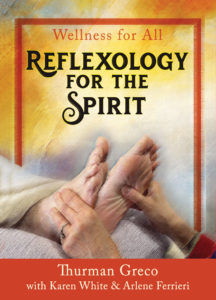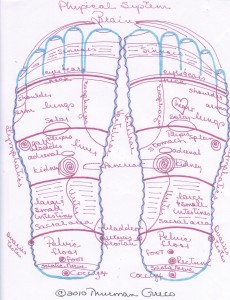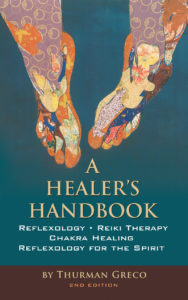Is it a Cold, the Flu, or Coronavirus?
For months we’ve all been reading and hearing about a resurgence of the coronavirus combined with the flu. So…what does this mean?
Every year I hear the same question at the beginning of flu season: HOW DO YOU KNOW WHETHER IT’S A COLD OR THE FLU? This season, the question is a little different: HOW DO YOU KNOW WHETHER IT’S A COLD OR THE FLU OR CORONAVIRUS?
There are some real differences.
Fever is rare with a cold. Fever is common with the flu. It’s usually high and lasts three or four days.
Headaches are rare with a cold but common with the flu.
Cold sufferers may have slight aches and pains. Flu sufferers have definite aches and pains which may be severe.
Extreme fatigue and/or weakness is just not a factor with a cold. Exhaustion is common with the flu – especially at the onset of the illness.
Sore throat, stuffy nose, and sneezing are common with a cold. A person suffering with a cold may have mild symptoms to include a hacking cough. With the flu, these symptoms can become severe.
With colds, treatment includes antihistamines, decongestants. With the flu, the patient needs to consult with a physician about any needed medication.
Coronavirus complicates things.
Many people experience fever as the first symptom of Coronavirus.
The second symptom is often a combination of a cough and muscle pain.
Nausea and vomiting make up the third tier.
These symptoms are usually followed by diarrhea.
And, that’s not all. Some people experience a loss of taste or smell.
And, some people experience deeply reddish-blue toes (chillblains).
Others have headache and dizziness.
The bottom line here is that coronavirus has many symptoms while colds and flu
are much less complicated.
If you suspect coronavirus, go get tested. Waiting around while you try to decide you are sick and contagious or not is not good for you and it’s not good for those around you.
There are several tools at your disposal which can help you early on.
A thermometer is essential. Take your temperature daily.
When I’m out in the community, my temperature is the key to getting into the office where I have an appointment.
The no-touch forehead fever thermometer gun has become ubiquitous on receptionists’ desks wherever I go.
There’s no reason why you shouldn’t take your temperature every morning. Your temperature can accompany your blood pressure reading. You can keep your thermometer gun beside your blood pressure cuff.
Then, you only need one other item: a pulse oximeter. A pulse oximeter estimates the amount of oxygen in your blood.
If you have coronavirus, your pulse oximeter will register a lower oxygen level in your body. This is because with coronavirus, your lungs are inflamed. (Actually, with coronavirus, inflammation is all over your body).
So, if you are concerned about your health because you may become exposed to coronavirus, you can help yourself with your temperature, your blood pressure, and your oxygen level.
If you feel ill, you will help your healthcare professional with these three scores.
For those who aren’t really familiar with an oximeter, it is the little plastic clip placed on your finger when you get your blood pressure measured.
These devices are not that expensive, are easy to use, and you can find an explanatory chart which will explain the meaning of the score.
Whatever you decide, prevention is important. Wash your hands often, wear a mask always when you leave your home, use hand sanitizer and don’t go anywhere around other people if you can help it.
Thanks for reading this blog post. If you liked this article, please forward it to your favorite social media networks.
Thanks again,
Thurman Greco
Endometriosis: a Spiritual Disease Focusing on Insecurity
Spiritually, endometriosis is insecurity, disappointment, and frustration. You are physically rejecting your feminine aspects. You experience rejection from men when you devalue and deny yourself.
Endometriosis can cause a lot of trouble in your life. Endometriosis happens when the tissue that normally lines the uterus grows outside your uterine cavity. On occasion, it may spread throughout your pelvis. Endometriosis can be tremendously painful and lead to heavy bleeding.
Endometriosis feels a little like heavy menstrual bleeding, menstrual cramps, and it goes along with irritable bowel syndrome.
I believe that endometriosis hides other conditions that have not been noticed. I feel it covers for hernias, chronic bladder issues, cystitis. Because of this, I urge you, if you have been diagnosed with endometriosis, to seek out and treat other conditions which contribute to your pelvic discomfort. Include allergies in this search for hidden causes of abdominal pain.
CHAKRA
Endometriosis is a second chakra imbalance
REFLEXOLOGY SYSTEMS TO WORK
reproductive system, endocrine system, liver, solar plexus, immune system, nervous system, muscular system,
ESSENTIAL OILS
clary sage, fennel, sage
SUGGESTED HEALING SYSTEMS
Conventional medicine, Traditional Chinese medicine, Naturopathy, Homeopathy, Herbalism. Begin your treatment with conventional medicine and supplement allopathic medicine with complementary and alternative medicine techniques where practical. Integrative medicine is appropriate here.
Visit a physician specialist first.
THINGS TO TRY
Increase your consumption of Omega-3 fatty acids. Adopt a low-glycemic diet. Eat fiber-rich food to include bran, dry beans, whole grains, fresh vegetables, fresh fruit, berries. Include soy foods in your diet. Learn Biofeedback techniques. Get surgery. Exercise regularly. Avoid obesity.
Thank you for reading this article. Please refer it to your favorite social media network.
Be well!
Thurman Greco
10 Wellness Tips for Your Self
There are many, many things you can do to keep yourself healthy. Staying healthy will help you maintain your youth. Many of these wellness tips are so easy you won’t even realize you’re promoting your good health.
Have a cold? Skip the antibiotics. A cold is a viral infection. Antibiotics are only good for bacterial infections. So…save your money.
Looking for a cold medication? This wellness tip can also save you money. Avoid the medications that multi-task. Simple medications cost less and focus on the symptom bothering you most.
Hot tea is good for making your throat feel good when you have a cold. Saline nasal drops help your nose feel better, too.
Don’t spread your cold germs around. Wash your hands frequently and don’t share your eating and drinking utensils.
When you come down with colds and/or hay fever, take the evening off. Climb into bed early and sleep an extra hour.
Don’t store your meds in the bathroom. Bathrooms tend to be too humid and too hot. These two conditions encourage deterioration.
Now might be a good time to quit smoking. Have you tried to stop smoking several times, this time switch to a pipe for a while. But, think of this as only a step toward freedom because pipe smokers and cigar smokers not only suffer from lung cancer but also get throat and mouth cancer.
Don’t take acetaminophen for an extended period of time without consulting with your primary healthcare provider. Long term regular use of these pain relievers can damage kidneys and liver. Occasional use of these drugs are safe for most people.
Make sure your smoke detectors are in working order. Replace any smoke detector that’s more than ten years old. If your smoke detectors are younger than ten years old, get an aerosol spray tester at a hardware store that simulates smoke.
Avoid raking leaves if you have allergies.
Hopefully these wellness tips are interesting and useful to you and your household.
Please share them with your favorite social media network.
Thanks for reading this article.
Thurman Greco
Thanks again!













